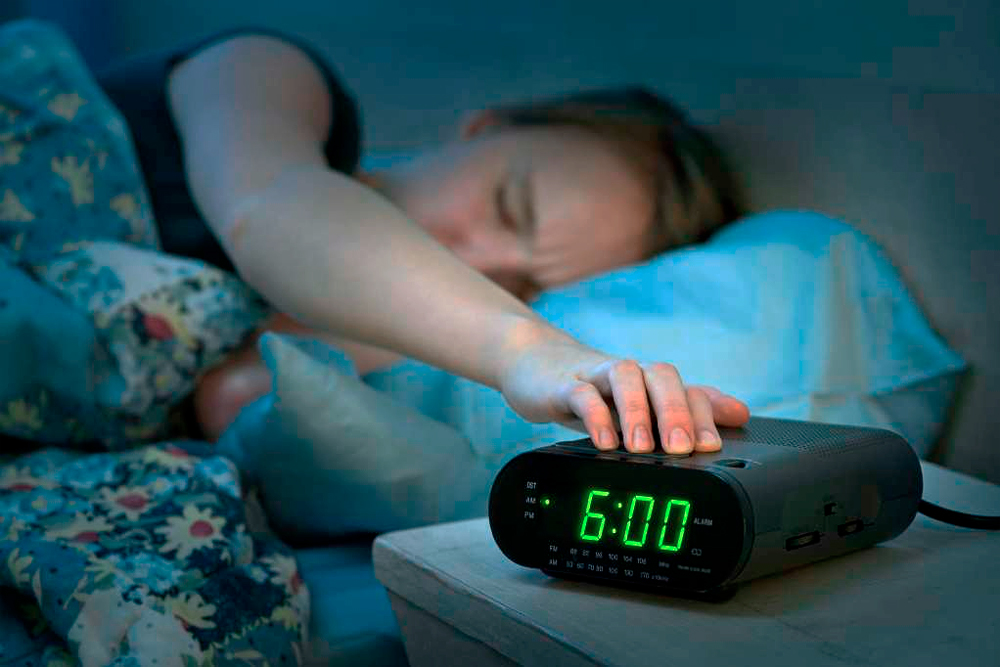Night owl by nature? Your penchant may net you more than a daily date with the snooze button. New research from Northwestern Medicine suggests your health may be in peril.
In a study of 500,000 British participants published last month in the journal Chronobiology International, those who said they prefer to stay up late and get up late had a 10 percent increased risk of premature death as compared to morning-loving larks. Their risk of diabetes, and psychological and neurological disorders also was increased.
Though the six-and-a-half year study wasn’t designed to delve into the underlying reasons, lead author Kristen Knutson, Ph.D., associate professor of neurology at Northwestern University Feinberg School of Medicine, has some theories.
One explanation could be that unhealthy habits like drinking, drug use, and inhaling an entire pizza happen more often in the darkest hours. But, she makes clear, the study didn’t actually identify when people were hitting the sack, merely when they would rather do so—a critical distinction.
“We wonder if the problem lies in the night owl having to live in this morning lark world,” she says. The risks may rise if you shove yourself into a regular 9-to-5 schedule during the week and follow your natural tendencies on the weekends, creating a phenomenon called “social jet lag.”
“Jumping around the clock and this mismatch between their internal clock and the external world could, over the long term, lead to health problems,” Knutson says, perhaps because hormone levels and other internal processes that prepare our bodies to eat and sleep don’t align with when we’re actually engaging in those tasks.
That explanation seems more likely than any inherent danger in staying up late, says James Wyatt, Ph.D., director of the Section of Sleep Disorders and Sleep-Wake Research at Rush University Medical Center. Wyatt often treats night shift workers and other patients who have to force themselves into alertness when they’d rather be snoozing.
If you’re continually battling biology, the shut-eye you do get is likely to be insufficient in both quality and quantity. Besides long-term health risks, sleep deprivation poses more urgent concerns: “It’s not necessarily waiting for cardiovascular disease to kill you in 20 years, it might cause an accident tomorrow,” he says.
Wyatt advises night owls not to panic at the new results. The fact that participants answered just one question (“Do you consider yourself to be definitely a morning person, more a morning than evening person, more an evening than morning person, or definitely an evening person?”) to identify what’s called their chronotype gives him pause.
His work in the clinic often starts with untangling biological factors like genetics (which account for about 50 percent of the variance in morning vs. evening preference, Knutson says) from the social and environmental factors that influence behavior.
Does a person claiming to be a night owl truly have the best focus, energy, and performance in the wee hours? “Or is it merely secondary to, well, I’m a college student and all my friends are up late, so there’s a social pressure to say I’m a night owl? Or a pressure based on an occupation, like being the food services industry?” Wyatt says.
Only by understanding the relative contributions of nature and nurture can he figure out how to help people, either by adjusting their lifestyle, treating underlying sleep-disrupting conditions like sleep apnea, or working to reset their circadian rhythms with techniques like carefully timing their exposure to sunlight and darkness.
Knutson and Wyatt agree more work needs to be done to understand potential risks associated with so-called circadian misalignment—and how to reduce them. In the meantime, there are a few things you can to protect your sleep and your health:
- Manage other lifestyle factors. Eating right, exercising regularly, and keeping tabs on things like your blood pressure and cholesterol reduce everyone’s risk of disease—and natural night owls may want to pay them a bit more mind, Knutson says.
- Keep a steady slumber schedule. Insufficient sleep is linked to a wide range of poor outcomes, from obesity to accidents to diabetes and heart disease. And it’s much easier to log the recommended seven to eight hours of shut-eye if you go to bed and get up at about the same time on the weekends and weekday. If you’re far off your target times, shift gradually, Knutson advises (you can’t immediately go to bed three hours earlier and expect to sleep well).
- See your doc if you’re drowsy. Red flags for sleep-related disorders include dozing off when you shouldn’t, such as when you’re behind the wheel. If sleep issues are starting to disrupt your life, your primary care doc may offer suggestions or refer you to a sleep center like Wyatt’s at Rush.



